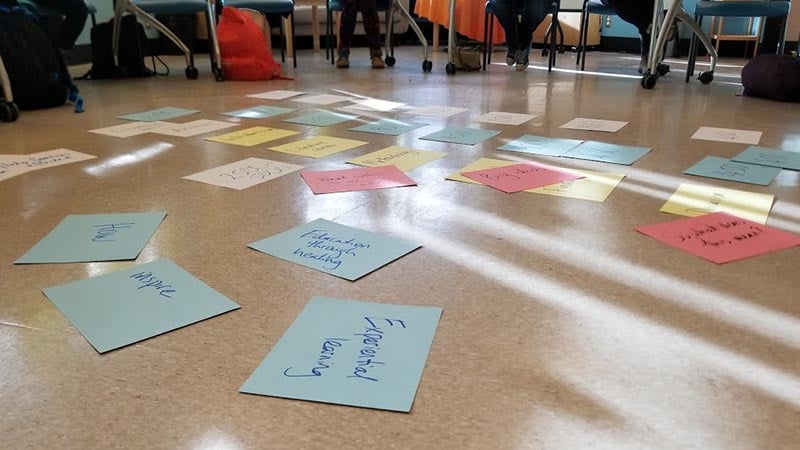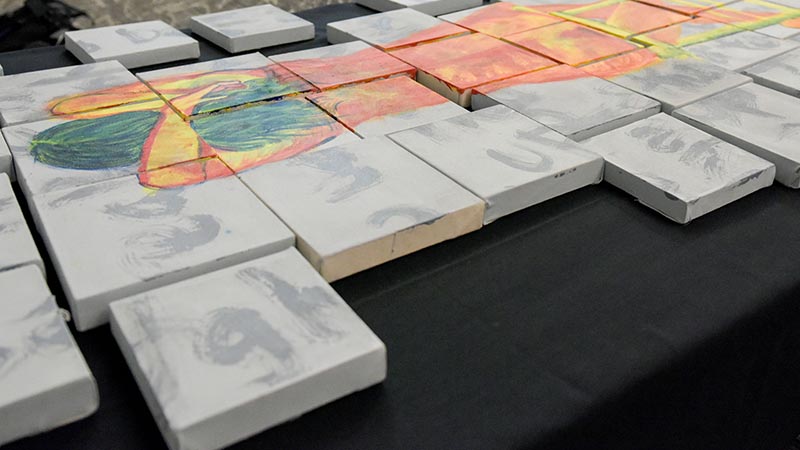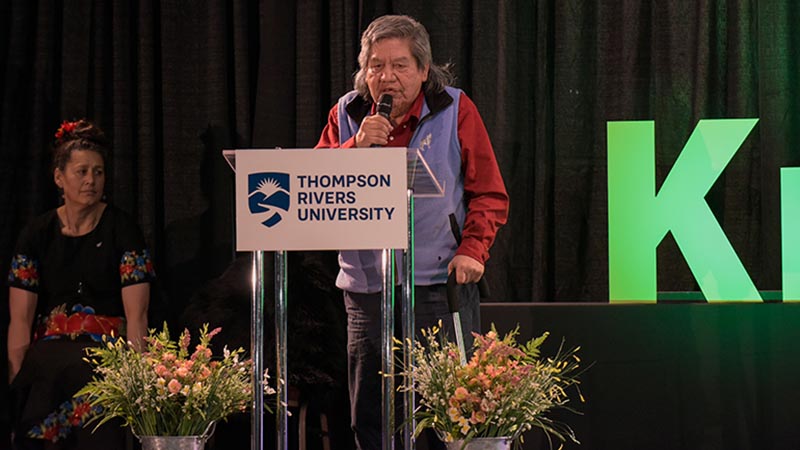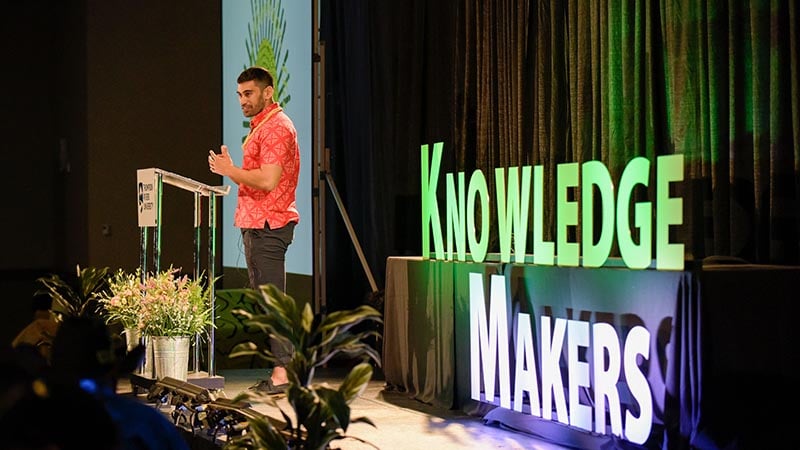Undergraduate Circle
The Knowledge Makers Undergraduate Circle is a four-month annual program. A multi-modal approach has been developed that is in-person, online, and transforms university teaching and learning. Since the program’s inception in 2015, more than 65 Indigenous students from at least 30 nations and bands have completed the program and published their first reviewed journal articles.
Knowledge Makers submit a research paper for publication in the Knowledge Makers Journal, and receive a $1,000 award at a dinner celebration to conclude their Knowledge Makers experience.
Contact1. One-on-one meetings, individualised research reading folders, and formalised mentoring:
Students will meet with their university-based Knowledge Makers program coordinator, one-on-one, to begin building a working relationship, and to discuss their own ambitions, community affiliations, and areas of research interest. This meeting is used to design individualised research reading folders for each student to utilise at the forthcoming workshop. These bespoke reading folders for each new Knowledge Maker consist of research that is written by Indigenous researchers (i) in their field of interest, (ii) from their community and/or (iii) about Indigenous research methodologies and epistemology. These individual research reading folders make visible to each student that it is not only possible but also accepted within their community/nation and/or discipline to undertake research from an Indigenous standpoint. A sustained practice of mentoring will begin between dedicated Indigenous academics and each Knowledge Maker student.
2. e-Portfolio:
A ‘landing place’ for Knowledge Maker students to formulate and share their research journeys alongside other interested students, with their family and community members, and for wider institutional representatives. A suite of guiding questions will purposefully seek to ‘provoke’ and inform each student’s opportunity to reflect and share (via their e-portfolio) about the people and communities that motivate them to pursue excellent research. Additionally, many Knowledge Makers may develop and publish other online media that explores their (evolving) relationship with Indigenous research.


3. Workshop:
Three weeks after their initial meeting with the Knowledge Maker program coordinator, all Knowledge Makers will attend a two-day university-based workshop with Elders, Indigenous faculty and staff, postgraduate students and people from within the institution or community who support their learning journey. This workshop environment is intentionally created as being an Indigenous space. The room is entered into through ceremony, Elders are not only present but involved throughout the two days. It is hosted entirely in circle and there will be shared agreement and understanding of the goals to be collectively achieved over the two days. The workshop will (i) thoroughly introduce Knowledge Makers to Indigenous research methodologies and methods; (ii) support Knowledge Makers in writing their own research plan to help them to make the difference in the world that they wish to see and be; and (iii) enable Knowledge Makers to begin thinking about what academic article they will submit to the Knowledge Makers Journal.
4. Journal article publication:
At the end of the two-day workshop, Knowledge Makers will receive a formal call for papers from the Knowledge Makers Journal editor. All students must submit their article within two months of this call. Each article will then be peer-reviewed by Indigenous academics, and students must respond to any reviewer comments within two weeks. The Knowledge Maker coordinator will actively support students during this specific function. All students’ articles will then go to a copy editor. Students must respond to any editorial commentary proffered within two weeks. The completed Knowledge Makers Journal comprising all Knowledge Makers’ articles will then be published (both online and hard copy).

Uncle Mike Arnouse

International Keynote, Dr. Sam Manuela
5. Celebration:
Past celebratory dinners have been emotional nights where the students, their families and wider community members who have shared their journeys come together in celebration. The university president opens and acknowledges the work of the Knowledge Makers, an Elder will welcome and acknowledge the students’ families. Some students choose to share drumming, songs or dance which reflect their community affiliations, and journey at this time. Each student is given their Knowledge Makers Journal and awarded $1,000 as an investment towards their future studies. As a reinforcement of Indigenous practices, this first journal must be given to a family member, friend or mentor. Thus, each Knowledge Maker is given time to acknowledge and speak directly to their family and community about their research journey. There is always an international keynote speaker who has previously met with the Knowledge Makers and read their work. This inspirational speaker shares words of advice and encouragement. Indigenous post-graduate students also offer words of guidance to the graduating Knowledge Makers. Finally, Knowledge Makers are invited onto the stage as a group where their families and community can acknowledge their collective achievements. For many Knowledge Makers, this Celebration is akin to ceremony and often represents a significant and affirming marker in their own future learning journeys, and as a marker for many of their family and community members’ ambitions and advancement too.

Knowledge Maker Elizabeth Spike and Yawhunudaih
